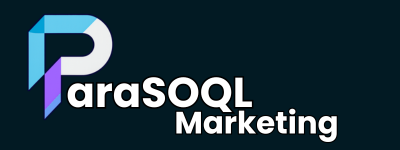Why a Website is Still Important for Small Business
In today’s digital-first world, some business owners question why a website is important for small business when social media platforms like Facebook and Instagram offer fast, free visibility. While these platforms are powerful tools for engagement, they shouldn’t be your only online presence. A website remains essential—it gives you full control over your brand, builds trust, and acts as the central hub that connects all your digital efforts.
In fact, your website and social media should work together—not compete. Here’s why having a website is still one of the smartest investments a small business can make, and how it complements your social media presence.
1. Control and Ownership
One of the biggest drawbacks of relying solely on social media is that you don’t own it. Platforms like Facebook and Instagram can—and do—change their algorithms, rules, and even remove content or pages without notice. When you build your online presence only on rented land, your business is vulnerable.
With a website, you own your content. It’s your digital real estate, and it puts you in full control of your branding, user experience, and data. You set the rules and create the experience that best reflects your business, without being at the mercy of someone else’s algorithm.
2. Credibility and Trust
A professionally designed website instantly boosts your credibility. In fact, 84% of consumers believe a business with a website is more credible than one with only a social media presence.
Your website is often the first impression people get when researching your business. It’s where customers go to confirm your legitimacy, check your services, and read reviews or testimonials. Without a website, some potential clients may question whether your business is real or established.
3. Showcase Your Products and Services in Depth
Social media has limitations. Your posts are constrained by format, visibility, and brevity. But on your website, you can provide rich, detailed information about your products, services, and pricing—without distraction.
You can include:
Full product/service pages
Frequently asked questions (FAQs)
Booking systems
Galleries
Customer testimonials
Case studies or blog content
This type of content not only helps build trust—it’s also great for search engine optimization (SEO), helping you get found by people searching for what you offer.
4. Search Engine Visibility (SEO)
Speaking of SEO: social media doesn’t help much with your visibility on Google. People searching for your services are more likely to find your website, not your Instagram page.
Optimizing your website for keywords, creating valuable blog content, and setting up local SEO elements like Google Maps integration or business directories will help you appear in search results. This means you’re attracting new customers who aren’t already following you on social media.
5. Lead Generation and Data Collection
Your website is your best lead generation tool. With the right forms and calls-to-action, you can gather:
Email subscribers
Booking requests
Contact form submissions
Online purchases
Plus, tools like Google Analytics give you insights into who’s visiting your site, what they’re looking at, and how they’re behaving—data you won’t get from Facebook alone.
6. A Hub That Connects All Your Channels
Think of your website as the central hub for your online presence. Social media drives traffic to your website, and your website funnels that traffic into actions: purchases, bookings, inquiries, or newsletter signups.
By linking from your Facebook and Instagram posts to specific landing pages on your site, you can create a seamless journey that turns followers into customers.
7. Staying Accessible 24/7
Your website is always open for business. While social posts can disappear in a feed, your website is a permanent resource that customers can access anytime—whether it’s 2 PM or 2 AM.
Having a website with essential information like hours, location, pricing, and FAQs means fewer repetitive inquiries and more empowered customers.
It’s Not Either-Or—It’s Both
Social media is powerful, but it’s not a standalone strategy. A website complements your social presence by offering a professional, trustworthy, and controllable space for your business to thrive.
Think of social media as your voice and your website as your home. When they work together, you create a complete digital presence that builds trust, drives traffic, and grows your business.
So if you’ve been putting off building or updating your website, now is the time. Your social media might get the clicks—but your website closes the deal.
